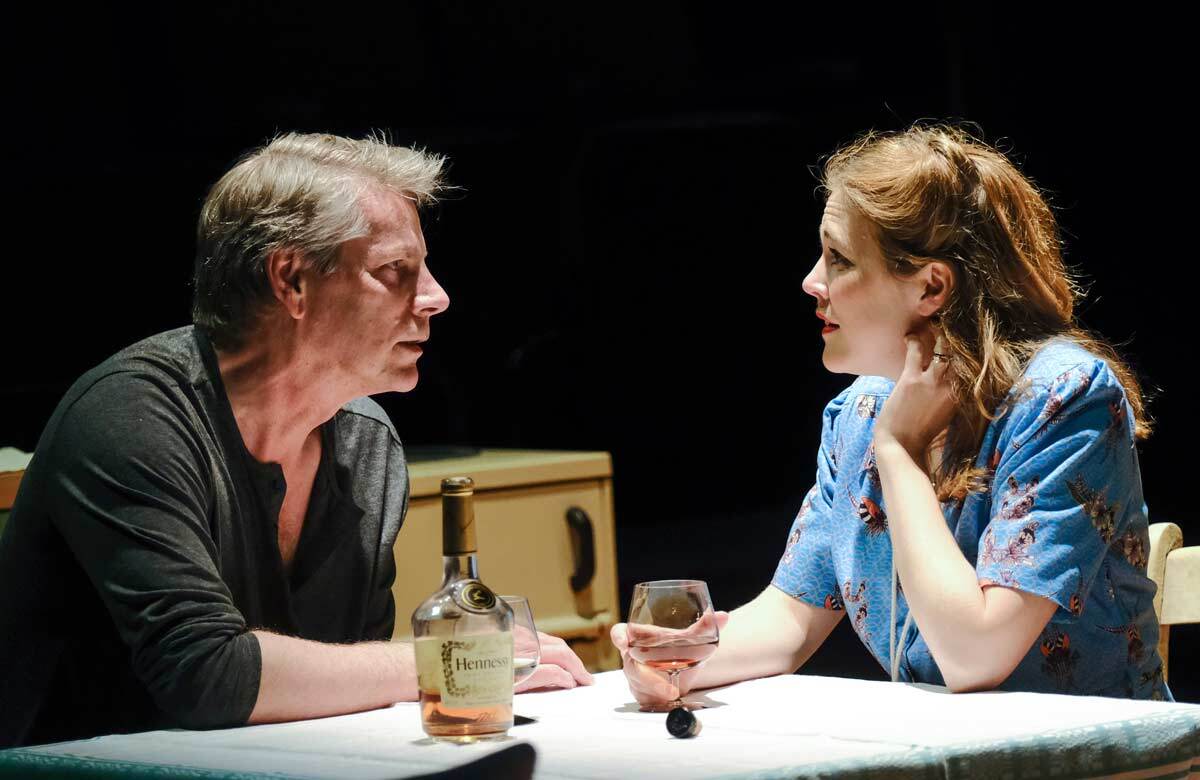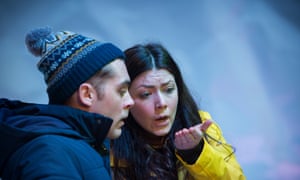It’s not really a new play; the story of robots gradually becoming more human is lifted straight out of the sub-plot of an earlier play. But the sub-plot was crying out to be made a play in its own right, and is the best new Ayckbourn I’ve seen in years.
Okay, Ayckbourn, I saw what you did there. And I’m possibly the only person and the press night who noticed this. But I remember back in 2012 a new Ayckbourn play called Surprises, set in a futuristic world where human beings can now live to well over 100, with all the new problems that entails. A sub-plot, however, is the integration of robots in society that look human and are gradually behaving more human. This sub-plot has been lifted wholesale into a new play, and even keeps some of the same characters. Richard Stacey reprises his role as Jan, and I even recognised my favourite line from Surprises re-used here.
Normally I would mark down a play for being an undeclared rehash of a previous one. But, the thing is, I always thought the robots sub-plot was by far the strongest theme in what was overall a middling play. Surprises suffered because it was unclear what the focus of the play was; but the focus on increasingly human robots and their relation to society produces, in my opinion, Alan Ayckbourn’s strongest play since Roundelay.
Constant Companions keeps the original sub-plot and adds two new ones. In an affluent household, Andrew implores technician Winton to deal with ED94-YBD92, a hussy of a domestic service who’s shamelessly seduced her darling innocent* son. Desperately trying to contact Winston is Don, who’s just bought a “constant companion” robot – with most of Don’s problems down to his inability to stop thinking with his dick. And in the third part of the stage is a state-of-the-art office where human Sylvia and security android Jan 60 are trying to deal with lawyer Lorraine who’s taking both her 60th birthday and her scumbag ex-husband’s present badly.
Continue reading




 The most remarkable thing about this studio piece at Live Theatre is its critical reception. I don’t often mention other people’s reviews in my own reviews (most of the time, I avoid reading the other reviews completely to avoid influence on mine). However, this time the acclaim was unprecedented.
The most remarkable thing about this studio piece at Live Theatre is its critical reception. I don’t often mention other people’s reviews in my own reviews (most of the time, I avoid reading the other reviews completely to avoid influence on mine). However, this time the acclaim was unprecedented. 
 Hero’s Welcome might be more “vanilla” Ayckbourn than the title suggests, but it’s still an excellent play showing Ayckbourn is no spent force.
Hero’s Welcome might be more “vanilla” Ayckbourn than the title suggests, but it’s still an excellent play showing Ayckbourn is no spent force.